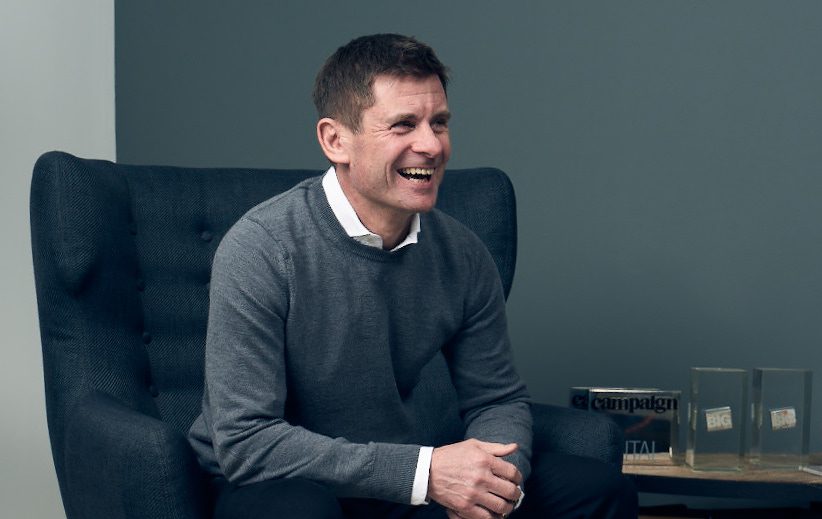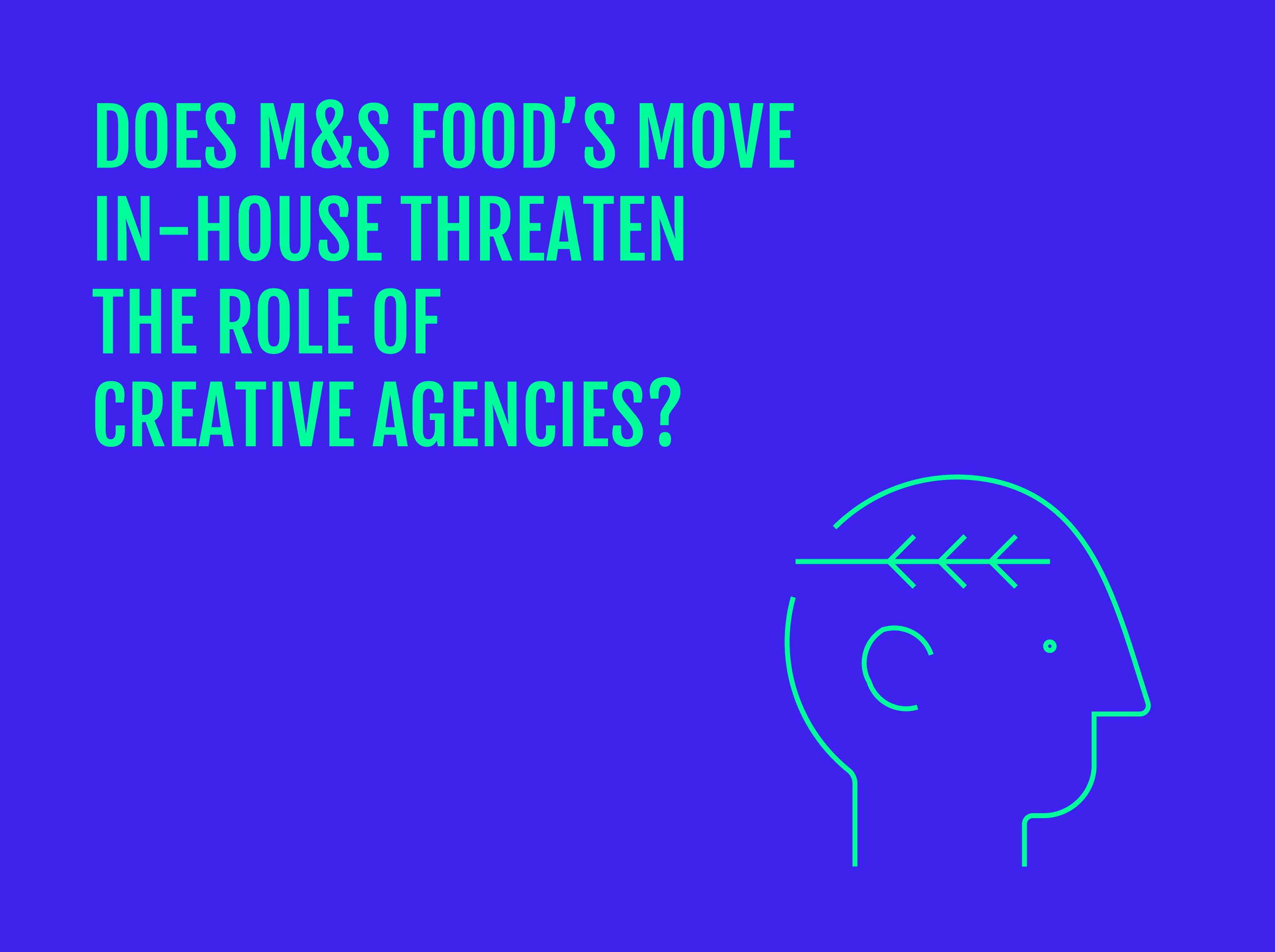Quickfire Questions: Simon Martin, CEO at OLIVER
Upon leaving school at 18, Simon Martin started his career as an insurance clerk with Norwich Union, which is now part of Aviva. After 12 years he struck out on his own, eventually launching marketing agency OLIVER, which pioneered the concept of creating in-house agencies for clients and which counts Virgin Media, Samsung, Hiscox and the AA among its clients. Born in Chelmsford, he and his family divide their time between London, Nottinghamshire and Switzerland.
What set you on the road to success?
“Aviva was my school and my entrepreneurial launchpad. It gave me a mindset to challenge convention. It also gave me a great understanding of business, law, sales and marketing as well as the value of insurance and enterprise to society.
After about four years, Aviva put me on its global executive development programme (usually reserved for graduates) with peers such as Amanda Blanc, current CEO of Aviva, and Jon Dye, current CEO of Allianz UK. I was on residential courses every three months for the best part of 10 years. It was exceptional training.
Aviva proactively coached my career development, leading to 30 different roles across nearly every area of the business, culminating in general management. By age 33 I was on the UK operating board and responsible for 2,000 staff and £1.2bn in revenue.
We were buying companies and merging them, and I inevitably saw redundancies taking place. I wanted to take control of my career and had always enjoyed the thought of running my own company. In 2000 I left to launch an internet procurement start-up, at what turned out to be right at the end of that particular dot.com boom.
My timing could have been a tad better perhaps, but it became my baptism of fire as an entrepreneur: terrifying, but essential learning. I sold that business for a relatively small amount of money. It gave me the drive to go again and led me to create OLIVER. The rest is history.”
Did you have a hero when you were younger?
My sports teacher at school and subsequent coach. He taught me about the value of persistence and team work. It was through him that I went on to play and coach volleyball at national league level, giving me a first taste of high-performance thinking, management and culture-building.
Do you have one now?
“I have so many. The Manchester United fan in me wants to say Sir Alex Ferguson. However, I most admire Jacinda Ardern (Prime Minister of New Zealand) for her unwavering integrity and bravery.
Giving birth to her daughter during her time in office illustrates her humanness and determination to challenge the status quo for women. The way she responded to the Christchurch terror attack was also truly inspirational. An incredible leader, and one of very few politicians that I could mention here.”
Do you get bored easily?
Yes and no. My colleagues tease me about my short attention span. But I’m also very persistent, which is the most important trait for an entrepreneur. I tend to get bored quickly if I feel that the balance between duration and value is wrong.
Who do you admire in business and in life generally?
If it’s not Ferguson in sport or Ardern in politics, then it would be other change-makers like Akala or Greta Thunberg. People who have the courage and tenacity to make the world a better place
How would you describe your leadership style?
“I call it being a pragmatic perfectionist. You need to have the desire and ambition to do everything really well when you’re in business. But then you also need to see that getting things perfect all of the time will slow you down.
I don’t let perfect be the enemy of good, like I did at the start of my career. I also know that mistakes are the best way to learn, and so I really encourage people to have the confidence to make them – as long as they share the lessons with everyone else after.”
What are your ambitions?
“To build a world-leading marketing services business for the 21st century.
Agencies emerged and prospered in the last 40 years of the 20th century, relying on media and creativity to build brands. While those skills are forever important, the world is hugely complex now with clients looking to technology, data and agility for their growth. Our talent, our technology and our model exist to make sense of complexity, and I genuinely believe that we are the experts at it.”
Do you believe in luck?
“Yes. People say that you create your own luck, and I somewhat agree with that. However, there’s so much in life that you cannot control, and that’s where ‘bad luck’ can hinder your efforts, no matter how prepared you are.
That said, by working hard and by honing the right skills, you’ll succeed regardless.”
What qualities do you look for in colleagues?
“The desire to learn, persistence, passion, integrity, resilience and the inherent confidence to try new things. I realise that’s quite the list!
The main thing for me today is empathy. In business, we need to get better at seeing one another as people – fallible and at times vulnerable – and supporting one another.”
Micro-manage or big picture?
“Both. Micro-managing has a bad reputation. In my view, the best way to lead is to focus on the big picture, but then get stuck in the detail when there’s a problem or people need support.
Micromanaging doesn’t have to be a negative experience if it’s done in the spirit of getting to the right result together. You just need to know when to turn micro-managing off and the big picture back on.”
Do you think business is valued by society?
“I think it’s valued by society, but not enough.
Business is by far the dominant proportion of global GDP and the creator of wealth – jobs, opportunity, trade and so on. Yet there’s a stereotype that all too often links it to greed.
Business has the power to change the world for the better. I sincerely believe that. It’s only by governments, and businesses like our own, helping business to thrive that it can be of more value to people and to the planet.”
How do you think business will change from 2020 onwards?
“The world was changing at speed long before the pandemic hit. The difference is, before the pandemic, businesses were embracing digital transformation in balance with older, more traditional operating imperatives. They were feeling their way.
Covid-19 changed the stride so suddenly that brands had to accelerate this re-engineering and sprint to new models for everything from e-commerce to B2B sales and digital marketing.
A lot of the behavioural change that’s attributed to the pandemic was in fact already in play – it’s the immediacy that changed – which is good news, as we already knew much of what we needed to do.
We will look back at 2020 as a moment of almost instantaneous business evolution. Most companies will be totally different in 2021 to how they were in 2019. We now have to transform on a bigger scale, mastering the things previously considered fringe activities.
”
How would you like business to change from 2020 onwards?
“I’d like to get back to the basics of understanding our purpose and living by it. That means putting people and their environment at the centre of every business decision from now on. This will dampen the historically cut-throat nature of business and help us remember that we’re all in this together.
In the same vein, we need to keep health and wellbeing as an ongoing priority. We cannot again become subservient to the constant grind of climbing the slippery career pole. I hope our work-life balance remains forever changed and we keep the focus on looking after ourselves, each other and our world.”
Here’s a magic wand – what are you going to do?
“I would eradicate racism and prejudice from existence. We have set about making OLIVER an actively anti-racist organisation, not simply a non-racist one, and I’m so proud to see this being embodied by all our staff.
Every business should be entirely focused on building inclusive cultures where people are treated equitably regardless of background, race or sexual orientation. Full stop.”
What’s your favourite time of day?
You know that time around mid-morning when the full pace of the day has been established? Huge amounts of energy is unleashed and the real fun can begin.
Where next?
“Next, we take the turmoil of the last year and turn it into something really meaningful.
Despite change being forced upon us, there are many shifts that, if we think about it, we’ll actually want to keep.
We’re entering a period where humanity will figure out how to deal with the negative impacts of Covid and start enjoying our lives again. That period could be three months away or three years depending on the progress of the pandemic and our ability to control it. But one thing’s for sure, we need to turn the challenges – the fear for loved-ones, the concerns over health, the loss of freedom – into as many new positive opportunities as possible.
That means more time for family and friends, more focus on our wellbeing, more time for doing what gets us buzzed in the morning.
I am making it my personal mission to work more closely with our staff and clients to maximize the positives from the pandemic, and try to bring back more joy to our lives.”



